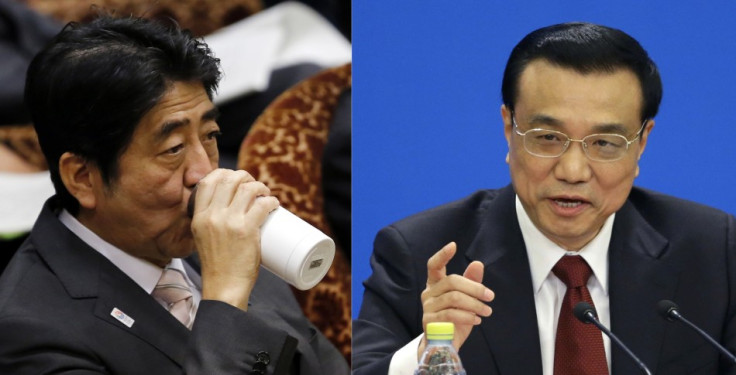China-Japan Row over Island Sovereignty Rages on

A new government may have taken office in China, but little has changed in the country's ongoing territorial dispute with Japan.
Japanese Prime Minister Shinzo Abe has warned against "provocation" over its territories while the new Chinese President Xi Jinping has vowed that he will fight for "the great renaissance of the Chinese nation".
In a veiled remark against China and North Korea, Abe, who is considered a hawk on foreign policy, said: "Unlike four years ago... provocations are continuing against our country's territorial land, sea and air."
China and Japan have been involved in a face-off over a chain of islands in the South China Sea. The archipelago, known as Senkaku in Japan and Diaoyu in China, has been causing serious tension between the two countries for the past few months.
Addressing new graduates of Tokyo's National Defence Academy, Abe said: "What is happening in the field where you will be is a harsh reality and a crisis that is there. I wish you to dedicate yourselves to noble duty in the field, to defend the people and the country."
The new government in Beijing has also reiterated its standpoint on foreign policy.
Without directly mentioning the islands, new Chinese Premier Li Keqiang said at his first press conference: "Let me underscore here China has an unwavering commitment to peaceful development. We also have unshakeable commitment to safeguard our country's sovereignty and territorial integrity."
Li added: "Even if China becomes stronger we will not seek hegemony because we have learnt from our own bitter experience in the modern period that one should not impose on others what he himself does not desire. It is an article of faith for us."
The Chinese parliament has also appointed Wang Yi as the country's new foreign minister. The 59-year-old diplomat served as China's ambassador to Japan for nearly three years.
© Copyright IBTimes 2025. All rights reserved.






















